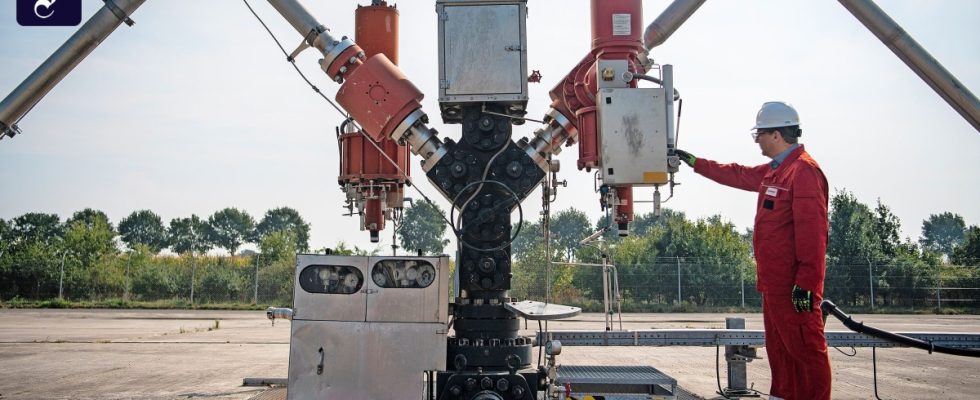DThere is currently no indication that Germany will rely on fracking to develop its domestic natural gas reserves. There were corresponding advances after the Russian attack on Ukraine; however, they were promptly suffocated. Federal Chancellor Olaf Scholz and Economics Minister Robert Habeck took a clear position against fracking, as did the state government in Lower Saxony, where, along with North Rhine-Westphalia, the largest deposits are located.
But is this decision objectively justified? The former president of the Federal Institute for Geosciences and Natural Resources (BGR) Hans-Joachim Kümpel denies this and considers the waiver to be the next big mistake in German energy policy. The professor of geophysics’ assessment is important because Kümpel has been scientifically concerned with drilling and its consequences for decades and, as BGR President (2007 to 2016), has seen the prevention of this technology up close. However, he only became aware of the political connections over time, says Kümpel, who also assures that he does not pursue any of his own financial interests in this context.
An important objection to fracking is that it creates additional fossil infrastructure that will only pay for itself after many years, even though, given man-made global warming, one must rely exclusively on green energies. Kümpel clearly supports the goal of the CO2-Neutrality. However, it is undisputed that Germany will still need fossil fuels for the foreseeable future, he argues. The German approach of relying on natural gas at this point was also correct in that the flexibly controllable gas power plants are better suited to the volatile solar and wind power than the slower coal or even nuclear power plants.
Geopolitical independence
Kümpel puts the potential for fracking gas in Germany at 1,000 billion cubic meters, and he believes an annual production volume of 20 billion cubic meters is feasible. Germany’s total natural gas consumption has been between 80 and 90 billion cubic meters for many years – with fracking, Germany would be able to cover a significant part of its energy needs itself again, after the conventionally exploitable gas reserves have largely been exhausted and are already needed for the German energy mix no longer play a significant role.

Image: BGR/FAZ graphic Brocker
With the help of fracking, Kümpel argues, Germany will become a little more geopolitically independent again. In addition, the capital invested remains in the country, as does the large amount of drilling technology know-how that would otherwise risk emigrating. Kümpel also contradicts the objection raised after the start of the Russian war of aggression that fracking brings little benefit because domestic gas is only available when it is no longer needed. If the much-quoted “Germany speed” is applied to approval, as is the case with the LNG terminals, this could happen quite quickly. Experts believe a period of three to four years is possible. “The technical part only takes six months,” estimates Kümpel.

